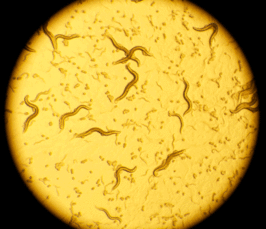Transgenerational epigenetic inheritance and RNAe
MPI Psy Tuesday Seminar
- Cancelled
- Date: Feb 16, 2016
- Time: 03:00 PM - 04:00 PM (Local Time Germany)
- Speaker: Prof. Eric Miska
- Herchel Smith Professor, The Gurdon Institute, University of Cambridge
- Location: Max Planck Institute of Psychiatry
- Room: Lecture Hall
- Host: Elisabeth Binder
- Contact: binder@psych.mpg.de

Following convincing arguments against (e.g. William Bateson) this debate was then set aside by the majority of the scientific community. However, a number of epigenetic phenomena involving RNA, histone modification or DNA methylation in many organisms have renewed interest in this area. Transgenerational effects likely have wide-ranging implications for human health, biological adaptation and evolution, however their mechanism and biology remain poorly understood. We recently demonstrated that a germline nuclear small RNA/chromatin pathway can maintain epi-allelic inheritance for many generations in C. elegans. This is a first in animals. We named this phenomenon RNA-induced epigenetic silencing (RNAe). We are currently further characterizing the mechanism of RNAe. In addition, we are testing the hypothesis that RNAe provides a transgenerational memory of the environment (“Lamarckism”). We are currently exploring related phenomena in mice. We are also working towards establishing iPS cells differentiating into germ cells as a model to study the mechanism of transgenerational epigenetic inheritance.